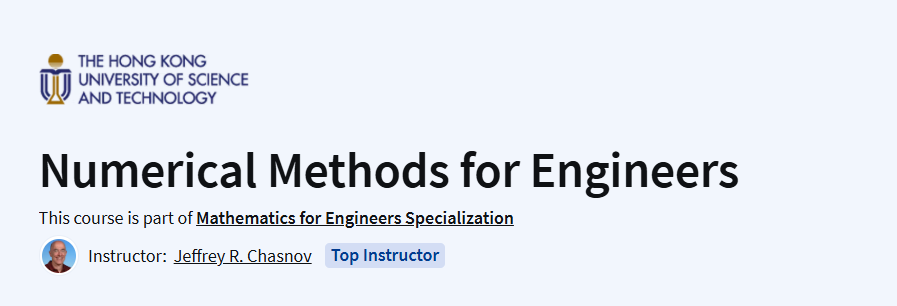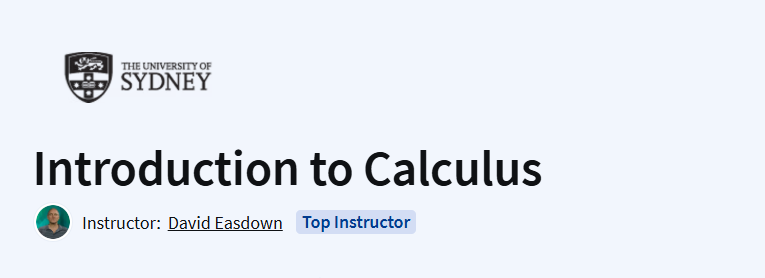What you will learn in Numerical Methods for Engineers Course
- Master root-finding algorithms (bisection, Newton-Raphson, secant methods)
- Learn numerical differentiation/integration techniques
- Solve systems of linear equations using iterative methods
- Implement numerical solutions to ODEs/PDEs
- Analyze truncation errors and algorithm stability
- Apply methods using MATLAB/Python in engineering contexts
Program Overview
Numerical Foundations
⏱️ 3-4 weeks
- Floating-point arithmetic and error analysis
- Condition numbers and algorithm stability
- Taylor series approximations
- Convergence criteria
Equation Solving
⏱️ 4-5 weeks
- Nonlinear equation solvers
- Linear system methods (Gauss-Seidel, Jacobi)
- Eigenvalue numerical computation
- Sparse matrix techniques
Calculus Applications
⏱️ 5-6 weeks
- Numerical differentiation (finite differences)
- Integration (trapezoidal, Simpson’s, Romberg)
- Monte Carlo methods
- Fourier transforms
Differential Equations
⏱️ 5-7 weeks
- ODE solutions (Euler, Runge-Kutta)
- Boundary value problems
- Finite difference methods for PDEs
- Heat/fluid flow applications
Get certificate
Job Outlook
- Critical for:
- Mechanical/Aerospace Engineers (75K130K)
- Computational Scientists (90K160K)
- Quantitative Analysts (100K200K+)
- Finite Element Analysts (85K140K)
- Industry Demand:
- 68% of engineering roles require numerical methods (2023 survey)
- Key skill for CAE, CFD, and FEA positions
Specification: Numerical Methods for Engineers
|
FAQs
- Ideal for engineering professionals who need to model physical systems, simulate behavior, or approximate solutions when analytic methods fail.
- Highly relevant for those working with data modeling, simulation, and design optimization in industries like aerospace, civil, or mechanical engineering.
- Valuable for R&D engineers solving differential equation-based problems in fluid dynamics, heat transfer, or structural analysis.
- Useful in control systems and robotics, where real-time numerical solutions are critical.
- Excellent preparation for academic research or graduate studies involving computational science.
- Introduces MATLAB from scratch in Week 1, covering scripts, loops, matrix ops, and plotting.
- Hands-on exercises and immediate coding applications help build confidence quickly.
- Lecture notes highlight that learners with limited programming background may need extra practice.
- Course forums and resources provide peer and instructor support for MATLAB challenges.
- For stronger foundational prep, free external resources like MathWorks tutorials or introductory MATLAB courses are recommended.
- MATLAB is the official course tool—but the numerical methods themselves are language-agnostic.
- You can translate methods like root finding or interpolation into Python using libraries like NumPy or SciPy.
- External resources like Berkeley’s Python for Engineering Numerical Methods show how to translate MATLAB algorithms into Python.
- Grasping the concepts via this course can make transitioning to Python smoother with sufficient practice.
- Supplement with Python-based tutorials and libraries to bridge implementation gaps if needed.
- Projects require actual MATLAB coding—like simulating logistic maps, solving differential equations, or implementing LU decompositions.
- Reviews highlight these as “demanding but immensely rewarding,” reinforcing theoretical understanding.
- Lecture notes and solution templates in the appendix offer guidance to help you progress.
- Ideal strategy: review lecture logic first, then tackle project step-by-step. Don’t hesitate to seek help from peers or forums if stuck.
- Even students with basic programming skills have successfully completed projects through incremental efforts and persistence.
- Solid understanding of matrix algebra, single- and multi-variable calculus, and differential equations is expected.
- In addition, familiarity with vector calculus helps, especially in PDE modules.
- Some background in algorithmic thinking or programming logic is advantageous.
- If gaps exist—for instance, in PDEs or MATLAB—you may benefit from short refreshers before starting.
- Strong mathematical grounding accelerates progression through method derivations and numerical intuition.





